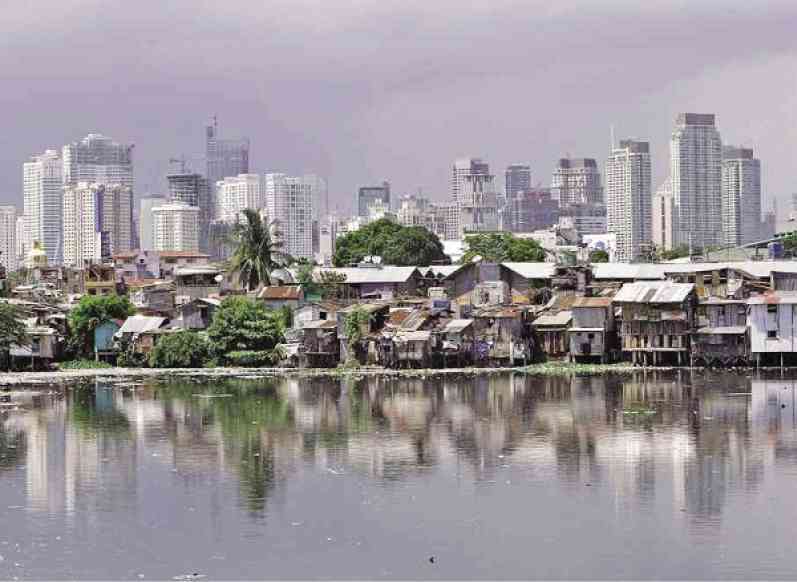How PH can benefit from urbanization

Well-functioning land market and efficient land use are important in creating sustainable and competitive cities.
How can a country like the Philippines benefit from rapid urbanization? By making cities more competitive, sustainable, and inclusive.
This was according to a joint study by the government and the World Bank, which stressed on the important role of cities as drivers of growth and providers of knowledge and innovation.
The study, entitled “Philippines Urbanization Review: Fostering Competitive, Sustainable and Inclusive Cities”, stated that about 45 percent of Filipinos live in urban areas today.
That number is expected to more than double by 2050 to 102 million, generating higher demand for housing, basic services, transportation, and jobs.
City competitiveness
Currently, Philippine cities generate more than 70 percent of the country’s gross domestic product, more than half of it from Metro Manila alone.
“City competitiveness is an important part of successful urbanization, because it creates jobs, raises productivity and increases people’s wages,” said World Bank country director Mara K. Warwick. “But that is not enough. Cities need to be inclusive and sustainable. They should have good land use management and strong institutions.”
Three major challenges, however, will have to be addressed if the country is to benefit from rapid urbanization.
These were identified as density, pertaining to the growing population which is not matched by key infrastructure investments; distance, referring to connectivity issues that increase transportation cost and impede labor mobility; and division, which is about limited access to basic services and economic opportunities especially among informal settlers.
Addressing these challenges, the study pointed out, would meanwhile require key reforms and focus in four priority areas namely city competitiveness; inclusive urbanization; urban governance and institutions; and land administration and management.
Fundamental infrastructure
The study defined land administration as the processes of determining, recording and disseminating information about the tenure, value and use, while land management refers to the process by which the resources of land are put to good effect.
According to the World Bank, land administration and management (LAM) systems are a fundamental infrastructure for proper functioning of land markets, which meanwhile “enable land to flow to those who are willing and able to use land well, thereby, facilitate investments and growth, improve land allocation, and develop financial markets.”
“Well-functioning land market and efficient land use are important in creating sustainable and competitive cities. Rural to urban migration—one of the significant drivers of urbanization—is propelled partly by an efficient LAM system that provides secure property rights and well-functioning land markets,” it said.
Binding constraints
But there are a number of challenges that affect land use in urban areas—the so-called binding constraints hampering the overall competitiveness of Philippine cities.
These include a weak LAM system; outdated and ineffective land use planning and regulations; increasing informality in urban centers; and highly politicized property taxation and valuation practices, which negatively impact financing for urban development.
The country’s weak LAM system, according to the study, was due partly to the presence of multiple agencies involved in land administration; incomplete cadastral surveys that have resulted in many unresolved conflicts and boundary disputes among local government units (LGUs); and backlogs in titling in the face of rising land values.
Due to inadequate LAM system, weak planning and ad hoc spatial development, Metro Manila saw the continued growth in the number of informal settler families (ISFs).
From 2007 to 2011, the growth rate of ISFs reached 7.3 percent, consisting of more than half a million households, representing a quarter of the metro population, data from the study showed.
The study also pointed out that the average real property tax (RPT) collection by all LGUs in the Philippines stood at only 31 percent of total local revenue collections in 2014—lower than the average RPT collection for middle income and high income countries, which stood at 35.5 percent and 37.7 percent, respectively.
In fact, Philippine cities were said to miss up to P20.3 billion in RPT when they are not aggressive in tax collection. Of the amount, P15.9 billion are foregone in 51 metropolitan areas and highly urbanized cities.
Proposed reforms
“The weak LAM infrastructure, including the land information system, has created substantial inefficiencies in the land markets and has contributed to inefficient property valuation and taxation,” it stated.
“These in turn limit the capacities of LGUs to finance local infrastructure investments and leads to poor land use planning that yields sub-optimal urban growth and spatial development. But the most glaring manifestation of these issues perhaps in the proliferation of informality in cities across the country,” the World Bank study further explained.
It also pointed out that the current state of land policies, systems and processes suggested the need for fundamental reforms if the Philippines aims to optimize the benefits of urbanization for economic growth and poverty reduction.
To enable the Philippines to benefit from rapid urbanization, the study had put forward recommendations. Theseinclude addressing growing informal settlements; streamlining institutional arrangements for land services; developing integrated land information system; developing a metro-wide physical planning framework; and improving property taxation and valuation.














